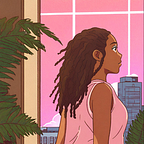RACE + CINEMA
Netflix’s ‘Passing’ Reveals The Hidden Lives of Black People Living As White
But some people are missing the point. Let’s unpack this.
“Passing,” which first aired at the 2021 Sundance Film festival, unearthed a lively story from the Harlem Renaissance era based on a novella written by Nella Larsen and reimagined by director Rebecca Hall. Netflix, which will air the film in November, released the trailer, and it’s causing quite a cultural stir.
Ironically, some casual critics claim the actresses in the film don’t actually “pass for White.” But, unfortunately, they’re missing the point. To pass for White, a Black person doesn’t have to look identical to a White person, just close enough to be mistaken for one.
“We wouldn’t have a world where ‘passing’ occurred if there were no incentives associated with ‘Whiteness.’”
These critiques modernize the story’s impact, highlighting the complexities of racial identity in America. Not accepting these women as “passing” — which they certainly would be in the 1920s — only proves society moved the bar since then, and that folks that passed back then, perhaps would not pass now. Proximity to Whiteness is coveted in America because of anti-Black racism— that’s the dynamic at play here. Without racism, racial identity would be irrelevant.
While dropping us into a world filmed in black and white, the “Passing” trailer hints to us that “nothing is black and white.” It unearths shades of gray in our racial discourse through an intimate look into the lives of two women, each living on opposite sides of the color line.
While Irene — played by Tessa Thompson — lives as a Black woman and is married to a Black doctor, Clare — portrayed by Ruth Negga — “passes” for White and is married to a wealthy White man.
In an uncomfortable scene where Irene meets Clare’s husband, he brags: “I hate Negroes.” His comments add tension, thick enough to slice. Clearly, he thinks he’s married to a White woman. This scene highlights how deeply interwoven racism is in American culture.
